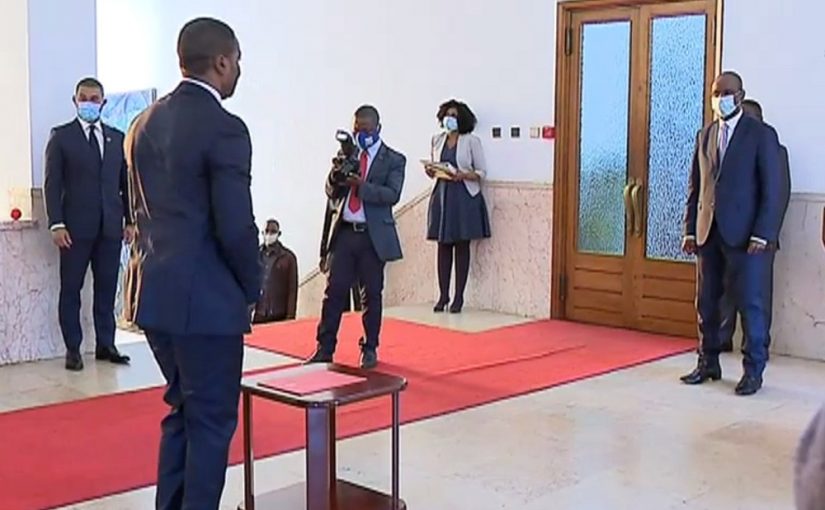50 years of Mozambique-China ties become a model for developing nations, says former Mozambican PM
Mozambique: Finance Inspectorate must improve internal controls

Photo: TVM
Mozambican Prime Minister Carlos Agostinho do Rosario declared on Tuesday that the government expects the General Inspectorate of Finance (IGF) to ensure the timely verification of legality in all the internal controls in the public administration.
Speaking at the ceremony where he swore into office the new General Inspector of Finance, Emanuel Mabumo, Rosario said he hoped to see better guarantees for the correct implementation of public expenditure procedures and the administration of state assets.
The government, he continued, has been taking measures to improve internal controls and ensure greater transparency in execution of the state budget.
Improving the current systems, Rosario said, would require a General Inspectorate of Finance that is increasingly capable, and prepared to intervene in a timely fashion.
The Prime Minister also wanted to see improvements in the key documents through which the government is accountable for public expenditure. The most important of these is the General State Account, which the government presents every year to the Mozambican parliament, the Assembly of the Republic.
Rosario called for stronger coordination between the IGF and the sector internal control bodies, so as to eliminate duplication of tasks, thus rationalising the time and resources of the State.
At the same ceremony, the Prime Minister also swore into office, the general directors of the Cotton and Oilseeds Institute, Yolanda Goncalves, of the Institute of Nut Crops, Ilidio Bande, and of the Scholarships Institute, Carla Caomba.
“In the exercise of your duties, you should strive for a results-guided management, without neglecting the duty to serve citizens well”, said Rosario.
Addressing Goncalves and Bande, he stressed that they should prioritise research, extension, and the transfer of technology for producing the crops that are at the centre of their attentions.
He stressed that cotton, oil seeds and nut crops such as cashew “are vital for increasing our exports, and for stimulating local industry”.
As for Caomba, Rosario said that her institute should develop and implement an integrated scholarship system, and mobilise internal and external partnerships to finance it. He wanted to see greater transparency in the granting of scholarships, respecting priority areas for the country’s development, and a gender balance in the recipients of scholarships.













Leave a Reply
Be the First to Comment!
You must be logged in to post a comment.
You must be logged in to post a comment.